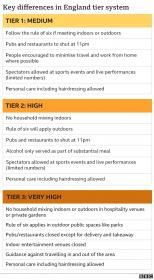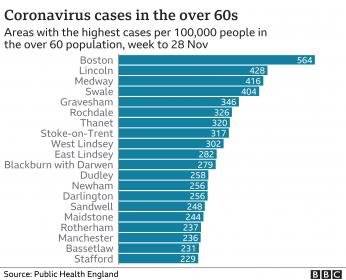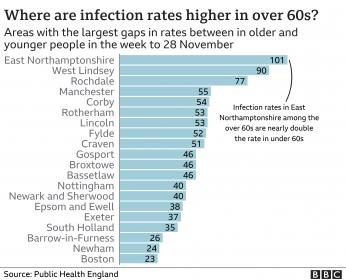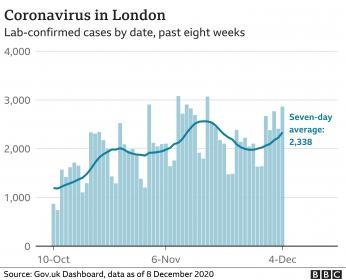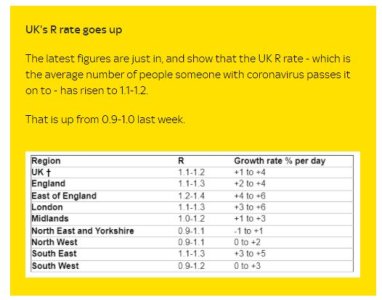- Joined
- Oct 2, 2004
- Runs
- 218,142
A further 12,330 people have tested positive for coronavirus and 205 people have died in the UK in the last 24 hours, government figures show.
The number of cases is a slight rise from the 12,155 new cases seen on Sunday - with the number of fatalities falling slightly from 215.
It brings the total number of coronavirus cases in the UK to 1,629,657, and the total number of deaths involving COVID-19 to 58,448.
In Wales there were another 802 cases and three deaths. It brings the total number of confirmed cases to 80,342 and the total deaths since the start of the pandemic to 2,540, according to Public Health Wales.
A further 183 people who tested positive for coronavirus have died in hospital in England, bringing the total number of confirmed hospital deaths to 40,588, NHS England said on Monday.
Patients were aged between 52 and 95. All except three, aged between 84 and 93, had known underlying health conditions.
The deaths were between 5 November and 29 November, with the majority on or after 23 November.
The number of cases is a slight rise from the 12,155 new cases seen on Sunday - with the number of fatalities falling slightly from 215.
It brings the total number of coronavirus cases in the UK to 1,629,657, and the total number of deaths involving COVID-19 to 58,448.
In Wales there were another 802 cases and three deaths. It brings the total number of confirmed cases to 80,342 and the total deaths since the start of the pandemic to 2,540, according to Public Health Wales.
A further 183 people who tested positive for coronavirus have died in hospital in England, bringing the total number of confirmed hospital deaths to 40,588, NHS England said on Monday.
Patients were aged between 52 and 95. All except three, aged between 84 and 93, had known underlying health conditions.
The deaths were between 5 November and 29 November, with the majority on or after 23 November.






